- Home
- Bryce Courtenay
April Fool's Day Page 2
April Fool's Day Read online
Page 2
“I don’t care about precautions! He needs me to fight for him, he won’t make it alone!” Celeste frowned, seeking further reasons, “You see, he can’t fight the dark on his own, he’ll just die and I won’t be with him.”
The older woman was an experienced hand in Casualty and familiar with the behaviour of traumati-sed families. She had the good grace not to sigh, but her downcast eyes indicated her impatience. “He won’t die, dear. He is over the worst, his heart fibrillation has stopped and his pulse rate is steady. The doctor says he’ll be all right, he can’t be moved, movement can sometimes bring on another fit.” Her response was practised and fast and was followed by her thin, electric smile, “All he needs now is a little rest.”
She made this last statement as though Damon was completely cured, that is, but for a few hours needed to gather his strength. “You really must go now, you can’t stay, you can’t do anything more for him here.” She cocked her head and looked directly into Celeste’s eyes, folding her arms and hugging the clipboard to her bosom.
Celeste looked down and took Damon’s limp hand in her own as if she was about to tell his fortune. She was quite still and a tear rolled down her cheek and then her chin and dropped into Damon’s hand.
The sister stood her ground, not moving, allowing the silence to gather momentum. Her confrontation was experienced and dismissive, the stance she’d learned to use to shut things down quickly when trouble threatened. She was accustomed to having her own way and more than a match for this pretty little blonde with the cropped hair, high cheekbones and soft, generous mouth.
I was the first to capitulate. Embarrassed, anxious not to make a scene, I said, “C’mon, darling, I think perhaps we should go.” I moved over to the bed and took Celeste by the elbow. “You’re tired,” I appealed to her softly, “we’re all a bit tired, we haven’t eaten, c’mon, let’s go home, I’ll cook.”
The mention of food was crass. I told myself this wasn’t the right time to make a fuss. But I knew it was. I was aware I was being as weak as piss. I didn’t care, I wanted to leave, to run rather than walk away. My sensibilities were repulsed at the baby sweet odour of lanolin and talcum powder, at the inappropriate nursery innocence of the smell in this tiny room where they used only yellow bags. I had to get away from the bright light bouncing against the enamelled semi-gloss apple green walls and beating up from the polished vinyl floor.
The confrontation going on was gnawing at my gut and I could feel the day’s grime and the slightly damp sweat deposited around the rim of my collar. It was one o’clock in the morning and I hadn’t eaten since breakfast. I wanted to gulp outside air, to be swallowed by the street dark. I wanted time off from my son’s slow dying. Almost at once I was overwhelmed by guilt of this thought as well, the wanting to eat, feeling sorry for myself when my son was dying and I was so very much alive.
Celeste jerked her elbow free and releasing Damon’s hand she shot from the bed. “Get the doctor. Get the fucking doctor, now!” Her eyes were crazy, inches from the older woman’s. Taken completely by surprise, the nursing sister stepped backwards, her plump shoulders bumping against the wall and bouncing back.
Celeste too was a pro, six years with Damon and there wasn’t a hospital system in the Sydney metropolitan area she didn’t know. She’d been screwed by experts a hundred, maybe a thousand times before, this nursing sister was just another of the countless obstacles she’d come against.
In retrospect, the hospital sister wasn’t being particularly bitchy. She was simply exercising her judgment, getting through a tough shift the best she could. She was a product of an age when hospital visitors responded unquestioningly to her authority, but this time she was up against a new force, a young urban guerrilla armed with six years of anger, frustration and fierce, remorseless love.
Benita pushed forward, her face darkly angry. She too was a veteran. With a sweep of her arm she brushed Celeste out of the way and pinned the woman back against the wall. She is a big, classy-looking woman with a voice when she’s angry which cuts like razor ribbon.
“Excuse me, but she stays. The law says relatives can stay. So Celeste stays! Okay?” But she wasn’t really asking permission or even a question.
Benita pulled back and the sister lowered the clipboard and snorted, one eyebrow slightly raised, “And you excuse me, madam! She is not a relative.”
“Get-the-bloody-doctor!” Benita spat the words out, advancing again. Whereupon the sister pulled the clipboard hard against her breast, protecting herself unconsciously. “Ha!” she huffed, her large breasts jumping in surprise. Then she stormed out of the doorway. We could hear the angry squeak of her crepe-soled shoes on the vinyl as she moved down the corridor towards Casualty.
“Jesus, now what?”
Both women looked at me but said nothing. I knew they were thinking that I should have said something. That I’d gone to water. Fuck them, I’d had enough.
Quite soon afterwards the two young nurses returned wheeling a gurney. This time wearing only masks. They were silent, their eyes serious, aware no doubt of the conniption. On the gurney they carried a doubled over mattress and I helped them lift it and place it on the floor beside Damon’s bed. The mattress almost completely filled the tiny room so that Benita and I had to stand outside the door to say goodbye to Celeste.
When we’d gone and she was left alone with Damon, Celeste relocated his drip to the side nearest the door and lifted him from his bed, placing him on the mattress. There she slept with him safely in her arms. Celeste was not prepared to give Damon up, not to Death, not to anyone. So she held him tight all night, protecting him just the way she did every night at home.
Two
Birth, Weddings and Bloodlines.
Brett and Adam were both born reddish pink and creased-up looking, the way a normal baby should look, tiny hands turned into protesting fists, eyes closed tight to the sudden, shitty, air-filled space around them.
Both, by some miracle, missed out on the blood lottery which found Damon and stamped him at birth with its deadly imprint. He was born with a large bruise under his armpit which ran down his left side, across his ribs to his hip forming a deep, mulberry-coloured birthmark.
“Congratulations, you have another boy, Mrs Cour-tenay. A bit bruised, but that will soon pass. He’s pale, so we’ve given him a blood transfusion. You can bring him back in ten days and we’ll do the circumcision then.”
“A blood transfusion? Is that usual, doctor?”
“Not normal, but not unusual…probably caused by the forceps…nothing to be concerned about.”
In those days, the mid sixties, there was still a definite role you were expected to play around doctors. You were awed and grateful parents of the newborn. You waited to be spoken to, not wishing to appear stupid by asking questions. People dying of cancer of the colon were afraid to ask how long. How bad is the pain going to be? What does the blood in the stool mean? What further symptoms can we expect?
Doctors, with their scrubbed pink nails, perfectly trimmed cuticles and soft-looking hands that smelled of Phisohex were the high priests of the social temple. In our hospitals they were surrounded by the homage and adulation of the nursing staff and the pliant, schoolboy obedience of the interns. They responded, for the most part, by being bad tempered, intimidating, ill mannered and pompous.
Damon was a lovely baby with a fright of soft blond hair that stood up like a long brush cut from the very beginning. After a week at home the bruise down his side had blotched green and purple and we looked forward to the time when he’d be perfect again. After the evening feed he slept through the night, missing the three o’clock feed altogether and he almost never cried. Damon, even then, was no cry baby.
Benita, we used to say at the time, was stacked up front and there was milk for two babies and then some to spare. Around feeding time the aureole of her nipples showed dark against her wet shirt. After two kids in twenty-one months, we were pretty expert. Though I’d almost fo
rgotten about the pooey “curry bum” nappies (How can one small baby hold so much shit?) and the clotted, milky chunder down the back of my shirt as I worked for a burp.
By the time we’d had Damon home ten days and he was due to be taken back to hospital for his circumcision, we were into a routine. Benita was Jewish and by Jewish law, therefore, my sons were born Jews. However, the circumcision of our boys was not an observance of the ancient ritual of Brith Milah, when Abraham is commanded by God to circumcise his son by his wife Sarah as the sign of His covenant with the Jews. I think it was simply a common social custom which we took more or less for granted, happy to let the hospital undertake the inconsequential operation. After Brett and Adam, we knew circumcision wasn’t a big deal and we brought Damon straight back home from the hospital.
“Don’t worry if your baby bleeds a little, a few drops won’t hurt, it happens with circumcision.” The doctor’s voice was casual and reassuring.
Damon, we felt sure, was going to be an easy baby and his brothers, Brett, who was five, and Adam, who was three, seemed to like him a lot. They could often be seen standing at his bassinet with Damon’s tiny hand clutched around a dirty, extended finger while they talked serious brother talk with him.
We were going out on the evening of the day Damon was circumcised, to what promised to be a lavish affair, the twilight wedding reception of one of Benita’s girlfriends, Gemma Rubens. The invitation had arrived, not by post, but personally delivered, slipped under the front door. It came in a double-sized, expensive-looking, ivory-coloured envelope with our names scripted in silver by a calligrapher. The card, too, was edged in silver and embossed with two doves holding up a heart-shaped garland of roses. Inside the heart, printed in matte embossed silver, were the names, Dudley and Gemma.
The Goldberg family were third generation, highly successful and sophisticated Australian Jews at the respectable end of the rag trade, with a chain of successful shops. The bride’s family were Polish born, in the chicken meat business and also very rich. Benita assured me that old and new money were on a collision course – expensive understatement versus sheer ostentation.
We’d taken the elaborate invitation over to show Benita’s ageing grandmother, a tiny, birdlike Jewish lady with beautiful manners, who’d once been rich and in the same social milieu as the Goldbergs but now was poor again. She was no longer a member of the Jewish glitterati. She looked at the wedding invitation and observed wryly, “When you got it, why not show off a little? Tomorrow you may not got it again.”
I was fascinated with the prospect of the wedding. The idea of meeting these people, who had arrived in Australia with nothing more than the dirt under their fingernails and had made it really big, gave me hope for my own future. My mother, a small-town dressmaker, raised me and my sister without a father and we were just about as poor as a white skin allows you to get in South Africa. Like most people who’ve escaped this condition I was both fascinated as well as daunted by the idea of wealth. Money really scared me. People like the Goldbergs, who’d had it a long time, made me feel inferior.
Not so the Rubens, they were different, they’d been through the horror of the Holocaust and now were having to start all over again. They seemed to me to be the world’s best role model for someone like me; they had brains and an old culture, but they were not above buying respectability in a new country with a little marrying up and a little quality mixing. Everyone has to start somewhere and what I liked most about Australia was that it was odds-on that the most refined had once been among the vulgar. I saw the Rubens as my role models and the Goldbergs as my social destination.
We’d picked a hand-thrown fruit bowl glazed in a dark green with a Margaret Preston style of Australian wild flower motif. It cost more than we could easily afford and we’d comforted ourselves that, while ours would be the cheapest wedding gift there, it would make up for this by being overwhelmingly in good taste. Good taste was something I was also learning about. I guess I was already headed in the wrong direction. Pretension and smugness in the young is generally a great disadvantage to the quick accumulation of cash.
The Chevron Hilton, where the twilight reception was to be held, was showbiz and frequented by the glitterati. It was Sydney razzamatazz in the very best of bad taste. Sammy Davis Junior and Lennie Bruce had both performed there; the place was hot to trot.
As the day of the wedding was the same day as Damon’s circumcision, Benita was worried about leaving him in the care of Sarah, our regular baby-sitter. Worried was probably an understatement; Benita was fiercely protective of her children and it was only after my carping insistence on our going and a gentle extolling of Sarah’s virtue as a baby-sitter that she finally agreed to go. She left a bottle for Damon’s evening feed, though she expected to be back before this time.
Sarah was what was known in those days as “an unspoilt convent girl” and was in her final year of high school. She was going through a personal crisis, having lost her first real boyfriend and broken out in acne all in the same tragic month. She was the ideal baby-sitter, with three-year-old twins in her own family by dint of her mother’s second marriage. She knew her way around small children and we trusted her completely.
Benita was right about the ostentation; you could pick the Goldberg faction from the Rubens in a flash. Despite the early summer temperature, stoles of mink and silver fox were worn by the Rubens ladies over gowns, for the most part, of baby blue and pink satin, richly embroidered with seed pearls and diamantés. The matriarchs on the Goldberg side were outfitted several rungs up on the haute couture ladder in a preponderance of black, brown and burgundy. They wore no furs whatsoever.
Necks on both sides were neutral, equally expensively braced with pearl chokers. Ears, too, showed no discrimination and were splashed with diamonds that matched sister stones on carefully manicured fingers.
The men, on the other hand, looked much of a muchness and for the most part wore double-breasted, grey pin-striped or navy business suits. Theirs was a division created by accent, the nasal twang of the Australian vowel fighting with the guttural inflections of middle and eastern Europe. Male and female, everyone appeared to be talking at the same time so the band at the far end of the ballroom could only be heard in occasional snatches.
I don’t remember a great deal about the first half of the reception. I recall a young doctor sat next to Benita and totally monopolised her. I was more or less forced to speak exclusively to a middle-aged guy on my right who, it turned out, had made his money in chicken guts. When I showed a polite interest in the subject he seemed immediately keen to recruit me into the offal business.
Israel also proved to be very big on the agenda. This was a year before the Six Day War and the world was yet to discover that, lying dormant under two thousand years of Jewish passivity, was a formidable aggression. The Jews would take no more backward steps. This, however, was a metamorphosis yet to come. The great exodus from Europe and the return to the Palestine homeland was still a romantic idea, but every Jew in the Western world felt responsible for the rehabilitation of this narrow strip of sand and rock sandwiched between ancient enemies.
Jewish doctors and lawyers, professors and fishmongers, rag traders and, as it turned out, even Jews in the chicken guts business, all sent their daughters and their sons to help out. Gemma herself, fresh from a master’s degree in English Literature at Sydney University, spent eighteen months in a kibbutz growing and pickling cucumbers. Privately, she admitted that life as a kib-butznik was hell and her love for the promised land was quickly cured in the brine vats, where tiny green gherkins floated like baby turds and left her hands swollen and stinging for the entire time she was a daughter of the soil.
The greening of Israel was psychologically very important. The New World Jews, those who discovered freedom and prosperity in the lands of America, Canada, South Africa and Australia were, for the most part, within one or two generations from central and eastern Europe. For generations, Jews had been driv
en from the land they were to own. Yet the Torah taught them that they were a people of the land and that ownership of the soil was part of this deep, spiritual yearning at the core of the Jewish ethos. This, more than anything, was the reason for their return to the land of Israel.
If the Jews who prospered in new lands were not prepared to return themselves to Palestine then they were emotionally bound to its rebirth by occasionally lending their sons and daughters and by paying for the flowering of the desert. And so the book of trees was devised, The Golden Book. At weddings it became traditional to donate to The Golden Book. It was this aspect of the wedding of Dudley and Gemma that I most clearly remember because it was connected directly with what happened to Damon.
The bloke who dealt in chicken offal, the innards, giblets and guts, which he supplied by the truckload to pet food factories, seemed very grateful to have someone seated beside him who was prepared to listen. He was a natural enthusiast, proud of his success, and he wore a huge canary diamond signet ring which he told me was set in New Guinea gold and worth twenty-five thousand pounds. Although Australia had fairly recently converted to decimal currency and the dollar unit, he still spoke in pounds. He also mentioned that his daughter was an archaeologist but was working in a kibbutz in the Negev. It seemed that archaeologists, like violinists, were fairly thick on the ground in Israel and money for digs wasn’t high on the priority list in a nation frantic to establish a viable agricultural base. It turned out she was his only offspring and not interested in the offal business. He seemed happy to chat on and have me do the listening so that one thing led to another and, to my surprise, he ended up offering me a job. “Not everybody likes to work with a Jew. But we could make a good business. A nice boy like you could go far.”
There’s not a hell of a lot you can say to an offer like that. Nobody actually thinks specifically about joining the chicken offal business. I certainly recognised that here was a living example of how I could make a reasonably quick, if unprepossessing, fortune. Which, of course, was the main reason why I was anxious to attend the wedding reception in the first place. I had the theory that if you stick around money and success it rubs off a little. I’d always been poor and was still reasonably so. My career in advertising hadn’t advanced to the point where it couldn’t be curtailed if the right offer came from elsewhere. I had brains but lacked know-how.

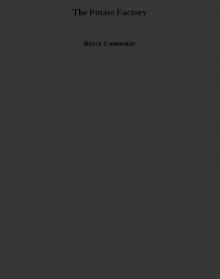 The Potato Factory
The Potato Factory The Power of One
The Power of One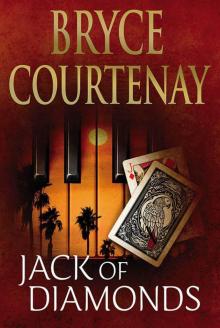 Jack of Diamonds
Jack of Diamonds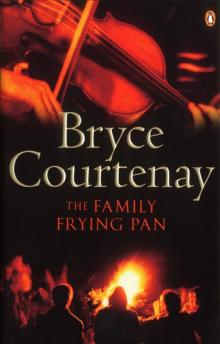 The Family Frying Pan
The Family Frying Pan April Fool's Day
April Fool's Day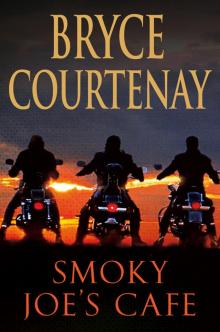 Smoky Joe's Cafe
Smoky Joe's Cafe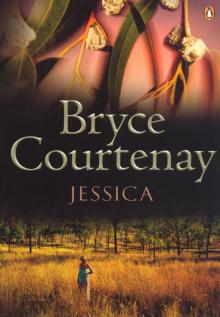 Jessica
Jessica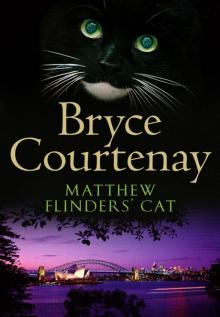 Matthew Flinders' Cat
Matthew Flinders' Cat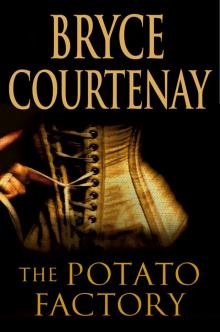 Potato Factory
Potato Factory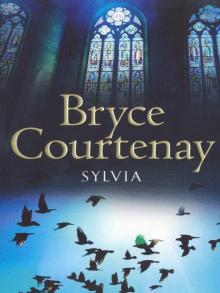 Sylvia
Sylvia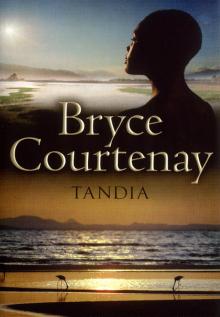 Tandia
Tandia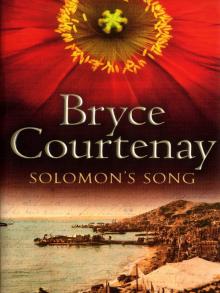 Solomon's Song
Solomon's Song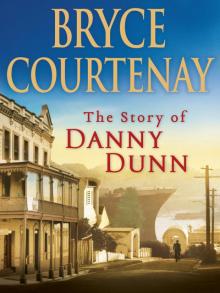 The Story of Danny Dunn
The Story of Danny Dunn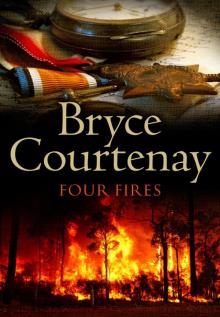 Four Fires
Four Fires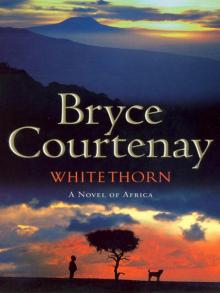 Whitethorn
Whitethorn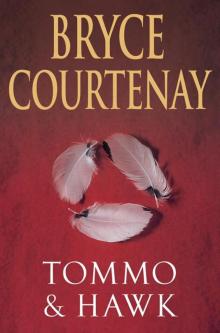 Tommo and Hawk
Tommo and Hawk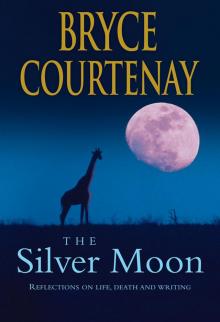 The Silver Moon
The Silver Moon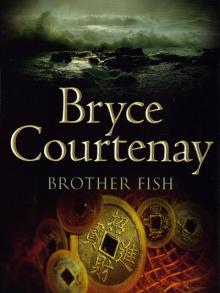 Brother Fish
Brother Fish FORTUNE COOKIE
FORTUNE COOKIE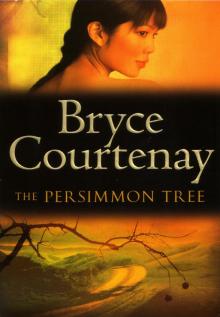 The Persimmon Tree
The Persimmon Tree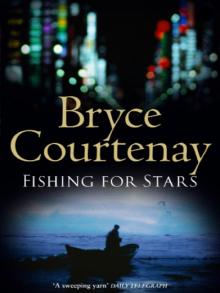 Fishing for Stars
Fishing for Stars